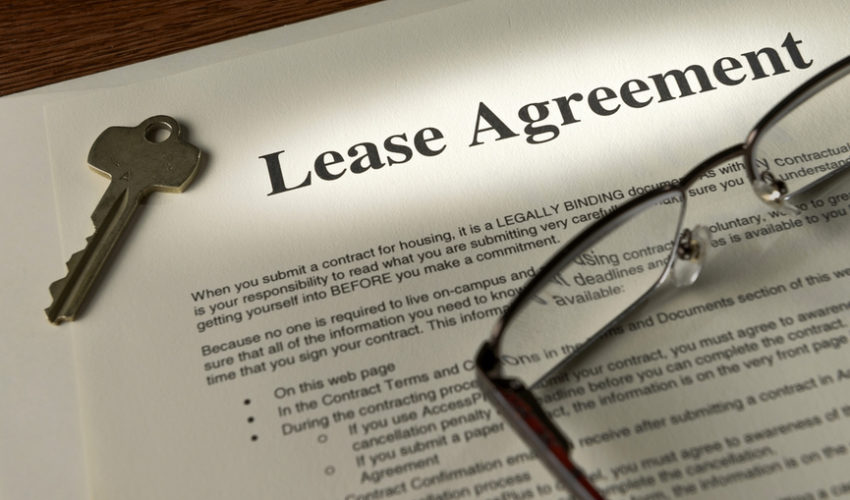Businesses need premises from which to operate and occupy their premises in line with the terms of their commercial lease. However, the requirements of your business can quickly change and, for one reason or another, a business may need to leave a property earlier than they had initially envisaged. The process of transferring or assigning a lease can be quite technical and in this article, transfer of commercial lease agreement, we take a look at the process involved.
Free Initial Telephone Discussion
For a free initial discussion on how we can advise you on the viability of transferring your commercial lease, get in touch with us today. We will review your situation and discuss the options open to you in a clear and approachable manner. Early expert legal assistance can help avoid the stress of dealing with these issues on your own. Simply call us on 0345 901 0445 or complete our online enquiry form and a member of the team will get back to you.
Is it possible to transfer a commercial lease?
There can be a number of reasons you may be looking at cancelling or transferring your commercial lease if you still have time left in your lease contract. Transferring a lease is also referred to as assigning a lease.
In most cases, a commercial lease is transferrable with the consent of the landlord. However, some leases contain a clause that prevents assignment so it is important to review the relevant provisions within the lease, which will also detail the requirements of the landlord on any assignment. In this case, the landlord may still be prepared to give consent but is entitled to refuse it.
Applying for the Landlords consent
Applying for your Landlords consent should be made in the way of a formal agreement or document. When applying for consent to transfer it must be served in accordance with specific clauses in the lease regarding service of notices or in accordance with the Landlord and Tenant Act 1927 or it may be ignored by the Landlord or agent.
The tenant will be liable for the Landlords costs whether or not the application is approved (although it may be possible to get the assignee to pay if the Landlord’s consent is given).
It’s also common practice for the Landlord to request a reference from an existing Landlord for the 3rd party and in some cases even 3 years previous accounts for the 3rd parties’ business. Your Landlord can also refuse consent if the 3rd party cannot provide references or has no trading history
Can the landlord refuse consent?
Most leases will say that the landlord cannot “unreasonably” withhold consent, but in any case a proviso to the effect that consent is not to be unreasonably withheld will be implied by the Landlord and Tenant Act 1927.
The Landlord and Tenant Act 1988 also states that a landlord owes a duty to the tenant to give consent except in a case where it is reasonable not to give consent. The landlord may give consent subject to conditions.
The landlord is also under a duty to deal with an application within a reasonable time and must give the tenant written notice of his decision whether or not to give consent. If the consent is withheld the landlord must specify its reasons for withholding it.
What is a ‘reasonable’ ground for the Landlord to refuse consent?
Under The Landlord and Tenant Act 1988, it is reasonable for a Landlord to refuse consent in cases where the tenants would be in breach of contract, for example, the new tenant using the premises for a type of business which is not permitted under the existing lease.
If you’re successful in obtaining consent to assign it’s likely that you’ll need to enter into an ‘Authorised Guarantee Agreement’ or AGA with your Landlord. An AGA essentially means that you’ll be guaranteeing that the 3rd party follows the lease agreement and you’ll also be liable for any breaches of the lease. The Landlord can in such cases enforce that you pay any missed rent or compensate any breach.
Completing the license to assign
If the landlord agrees to give consent this is usually recorded in a formal document known as a Licence to Assign. This will be prepared by the landlord’s solicitor or agents and the formal transfer of the lease to the new tenant should not be completed until the landlord has signed this Licence.
There will also need to be a deed of assignment/transfer between the original tenant and the new tenant detailing the various obligations of both parties.
How We Can Help
We understand that Commercial Lease negotiations can be stressful. Using our experience and wealth of knowledge, we can help negotiate your commercial lease.
How to Contact our Commercial Property Solicitors
It is important for you to be well informed about the issues and possible implications of assigning a commercial lease.
To speak to our Commercial Property solicitors today, simply call us on 0345 901 0445, or allow a member of the team to get back to you by filling in our online enquiry form. We are well known across the country and can assist wherever you are based. We also have offices based in Cheshire and London.






Leave a Reply
You must be logged in to post a comment.